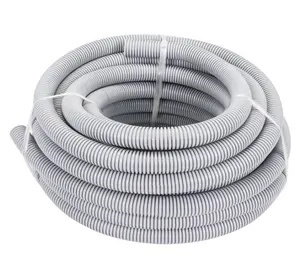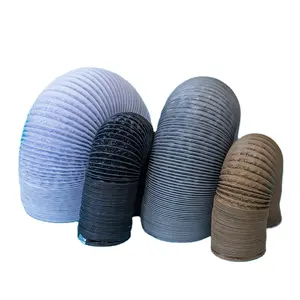A flexible water pipe, often referred to as a flexible water hose or flexible water supply line, is commonly used in plumbing systems to connect various fixtures and appliances to the water supply. More than an Amazon flex hose, these pipes are designed to be more versatile and easier to install than rigid pipes, providing flexibility in tight spaces and reducing the need for complex fittings.
Flexible water pipe facts
Consider these key points when adding flexible water pipes to your inventory or to use in your business. Materials: Flexible water pipes are typically made of materials like reinforced rubber, stainless steel, or braided nylon. The choice of material depends on the specific requirements of the application. Connectors: One or both ends of a black flexible water pipe usually have connectors that can be easily attached to faucets, toilets, water heaters, or other plumbing fixtures. Common connectors include compression fittings, push-to-connect fittings, or threaded fittings. Sizes: Flexible water pipes come in various lengths and diameters to accommodate different plumbing needs. It's important to choose the right size for the specific application to ensure proper water flow. A ½ inch flexible water pipe is a commonly used size. Applications: These pipes are commonly used in residential plumbing for connecting faucets, toilets, and appliances like dishwashers and washing machines. They are also used in commercial settings.
Benefits of flexible water pipes
Using a flexible water pipe has several advantages, including these: Flexibility: As the name suggests, these pipes are flexible, making them easier to install in tight spaces. Ease of Installation: They often require fewer tools and fittings compared to rigid pipes, simplifying the installation process. Resistance to Corrosion: Materials like stainless steel provide resistance to corrosion, increasing the lifespan of the pipe. Maintenance: While flexible water pipes are generally durable, it's essential to inspect them regularly for any signs of wear, damage, or leaks. If any issues are identified, the affected section should be replaced promptly. Considerations: When using a black plastic flexible water pipe, it's important to follow the manufacturer's guidelines and ensure that the pipes are compatible with the specific plumbing system. Additionally, it's crucial to avoid over-tightening fittings to prevent damage. Always check local building codes and regulations to ensure compliance with plumbing standards when installing flexible water pipes. If you're unsure about the specific requirements for your plumbing project, consulting with a professional plumber is advisable.











































 浙公网安备 33010002000092号
浙公网安备 33010002000092号 浙B2-20120091-4
浙B2-20120091-4